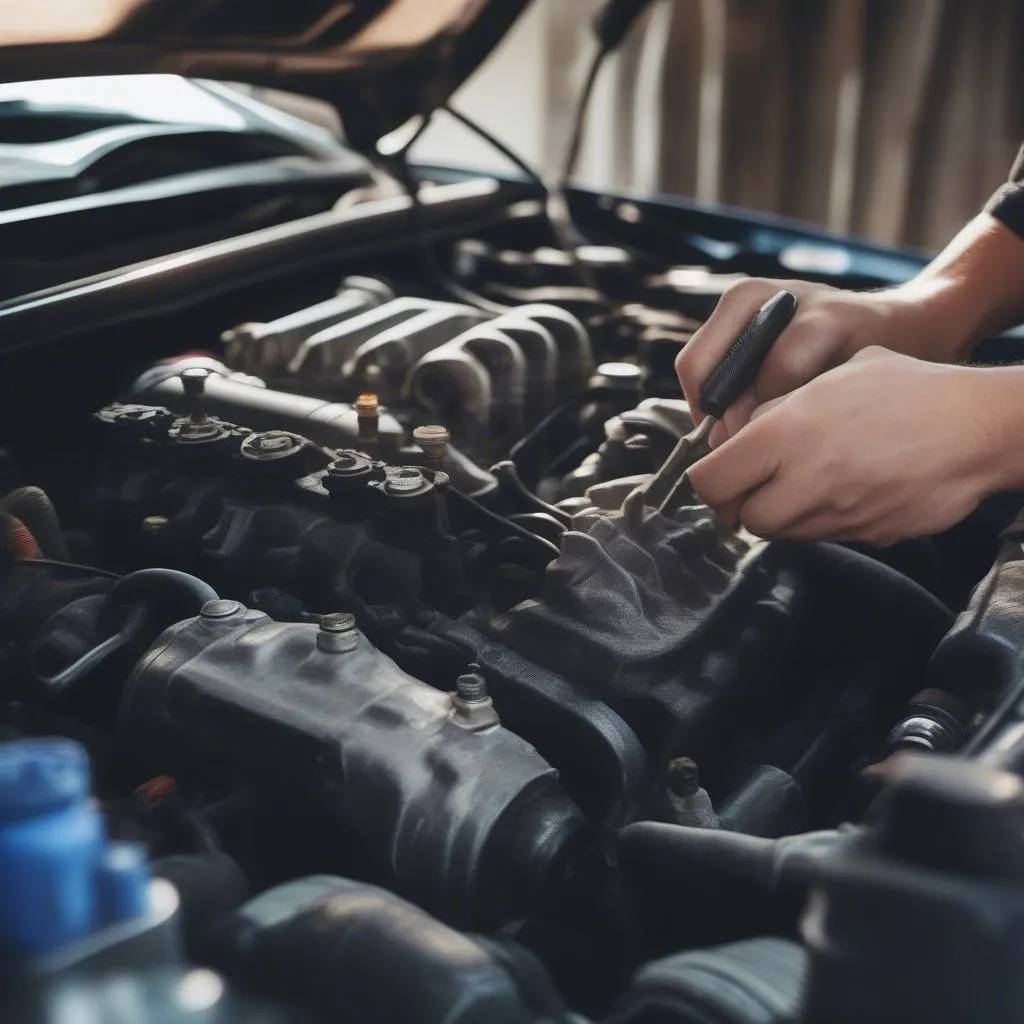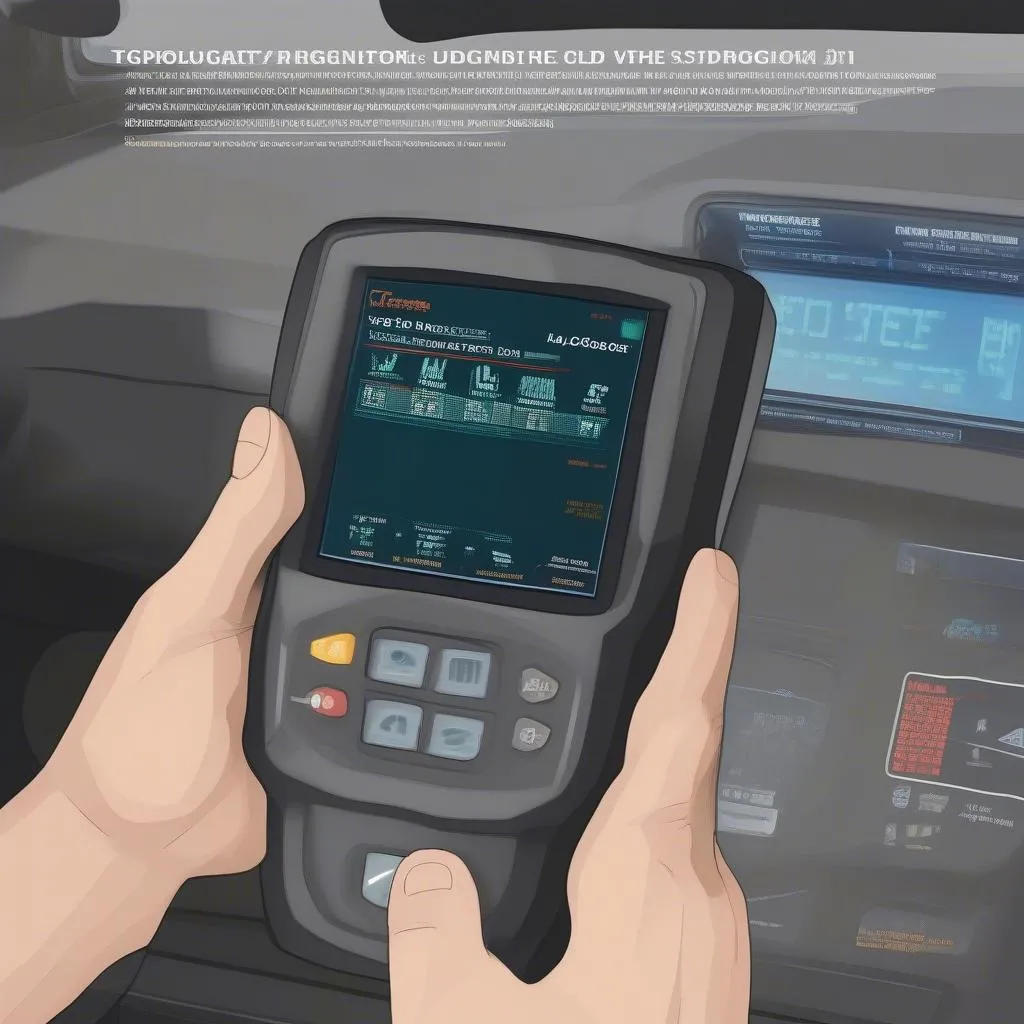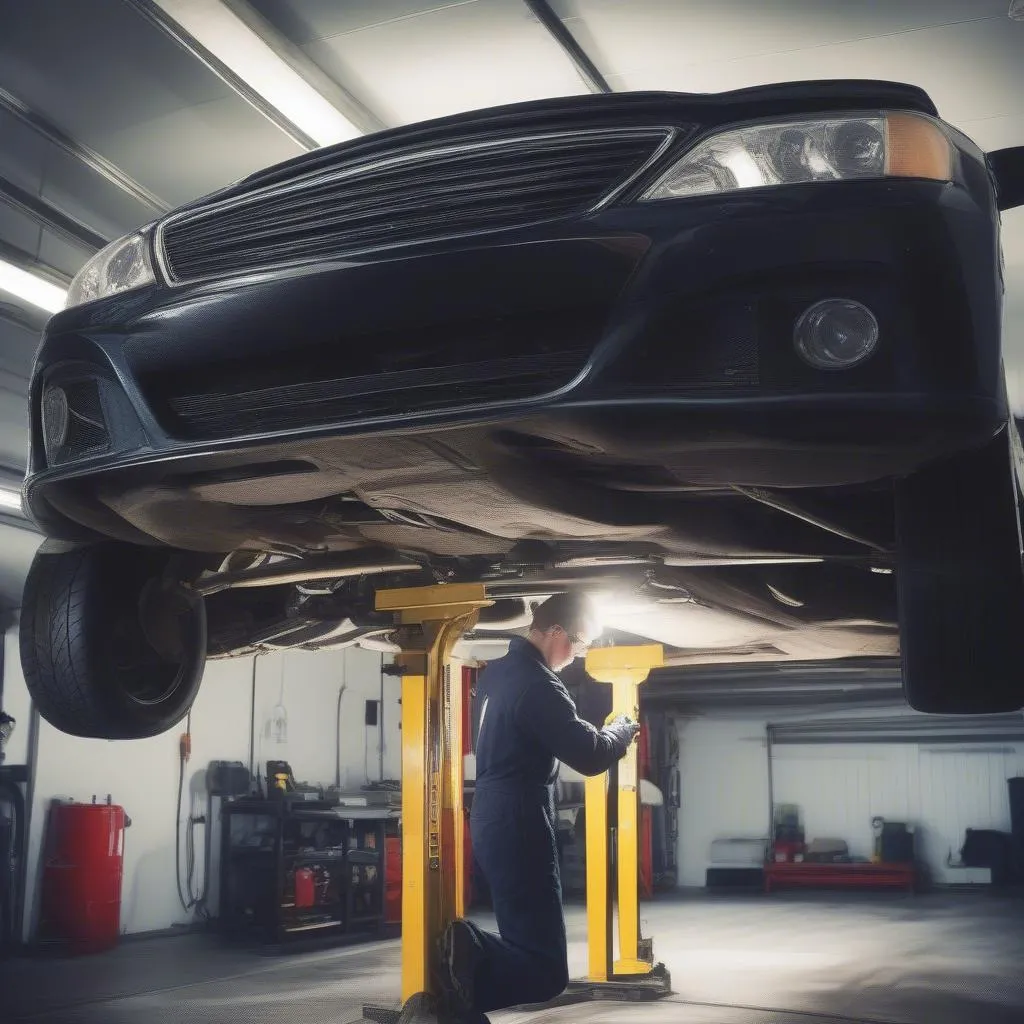Have you ever been stranded on the side of the road with a car that won’t start? You’re not alone. Car problems can be frustrating and expensive. But with a little knowledge and the right tools, you can often troubleshoot and fix many common issues yourself. In this guide, we’ll explore common car problems, how to diagnose them, and what you can do to fix them.
Understanding Car Problems: A Mechanic’s Perspective
Think of your car as a complex machine made up of many interconnected systems. A problem in one system can affect the entire car. For example, a bad battery can prevent the engine from starting, while a faulty fuel pump can cause the car to run poorly or stall. That’s where understanding the different systems in your car comes into play.
Common Car Problems and Their Causes
Here are some of the most common car problems and their potential causes:
1. Engine Problems:
- Engine won’t start: A dead battery, faulty starter, bad fuel pump, or clogged fuel filter are common culprits.
- Engine runs rough: A dirty air filter, bad spark plugs, faulty fuel injectors, or a clogged catalytic converter can all cause rough running.
- Engine Overheating: A leaking radiator, clogged cooling system, or faulty thermostat are common causes.
- Engine Knocking: This can indicate worn engine bearings, low oil levels, or problems with the ignition timing.
2. Electrical Problems:
- Headlights or tail lights not working: This can be a blown fuse, a faulty bulb, or a wiring issue.
- Car battery won’t hold a charge: A bad battery, alternator failure, or parasitic drain can cause this.
- Power windows not working: This is often a faulty switch, wiring problem, or a malfunctioning motor.
3. Transmission Problems:
- Transmission slipping: A worn clutch, low transmission fluid, or a faulty transmission control module can cause slipping.
- Transmission won’t shift: This could be a problem with the transmission fluid, a faulty solenoid, or a damaged transmission.
4. Suspension and Steering Problems:
- Steering wheel shakes: This can be caused by worn suspension components, unbalanced tires, or warped brake rotors.
- Car pulls to one side: This often means a problem with wheel alignment, worn suspension parts, or a tire with low pressure.
5. Brake Problems:
- Squeaky brakes: This is often a sign of worn brake pads or rotors.
- Spongy brake pedal: This can be a sign of air in the brake lines or worn brake master cylinder.
Diagnosing and Troubleshooting Car Problems
To diagnose a car problem, it’s crucial to follow a systematic approach. Here’s a step-by-step guide:
- Gather Information: Begin by noting any symptoms you’re experiencing. For example, is the car making unusual noises, losing power, or stalling? Also, pay attention to when the problem started, how long it’s been happening, and what you were doing when you noticed the issue.
- Perform a Visual Inspection: Look for any obvious problems, such as leaks, damaged wiring, or loose components. Check under the hood for signs of overheating, such as a boiling radiator or steam coming from the engine.
- Check Fluid Levels: Ensure all fluid levels are within the recommended range. This includes engine oil, coolant, power steering fluid, brake fluid, and transmission fluid.
- Use Diagnostic Tools: A code reader can help identify any fault codes stored by the car’s computer.
- Test Components: Depending on the problem, you may need to test specific components like the battery, alternator, starter, or spark plugs.
Addressing Car Problems: Tips and Tricks
Here are some tips for troubleshooting and fixing car problems:
- Consult Your Owner’s Manual: This manual contains valuable information about your car’s systems, troubleshooting steps, and specifications. It can be a great starting point for diagnosing and fixing problems.
- Seek Professional Help: If you’re not comfortable troubleshooting or fixing a car problem yourself, consult a qualified mechanic. They have the experience and tools to diagnose and repair even the most complex issues.
- Safety First: Always prioritize safety when working on your car. Wear protective gear like gloves and eye protection. Disconnect the battery before working on electrical components.
- Start Simple: Many car problems can be fixed with simple solutions like replacing a blown fuse, tightening a loose connection, or topping off fluids.
Common Questions About Troubleshooting Car Problems
1. What are some common signs of a bad battery?
The most common sign is your car not starting. Other signs include slow cranking, dimming lights, or the car’s electrical systems not working correctly.
2. How can I tell if my car is overheating?
You’ll notice steam coming from the hood, the temperature gauge will be high, and the engine might make unusual noises.
3. What should I do if my car stalls while driving?
Pull over to a safe location and check for any warning lights on the dashboard. It’s important to address the stalling issue promptly to prevent further damage.
4. What are some tips for preventing car problems?
Regular maintenance is key! This includes changing fluids, checking tire pressure, and performing a visual inspection under the hood regularly.
5. What should I do if I’m stranded with a car problem?
First, ensure your car is safely parked out of traffic. Contact roadside assistance or a tow truck for help.
Conclusion
Troubleshooting car problems can seem daunting, but with the right approach and a little knowledge, you can handle many common issues yourself. From understanding the basics of car systems to using diagnostic tools, this guide provides a roadmap for navigating the world of car repairs. Remember, safety is paramount, and if you ever feel unsure, it’s always best to seek professional help.
 troubleshooting car issues
troubleshooting car issues
 car code reader
car code reader
 car checkup
car checkup
Do you have any other car problems you’d like to learn about? Share your questions in the comments below.
We are here to help you with your car troubles! For expert advice and support with diagnosing and fixing car problems, contact us at [Whatsapp: +84767531508]. Our team of experienced automotive professionals is available 24/7 to assist you.